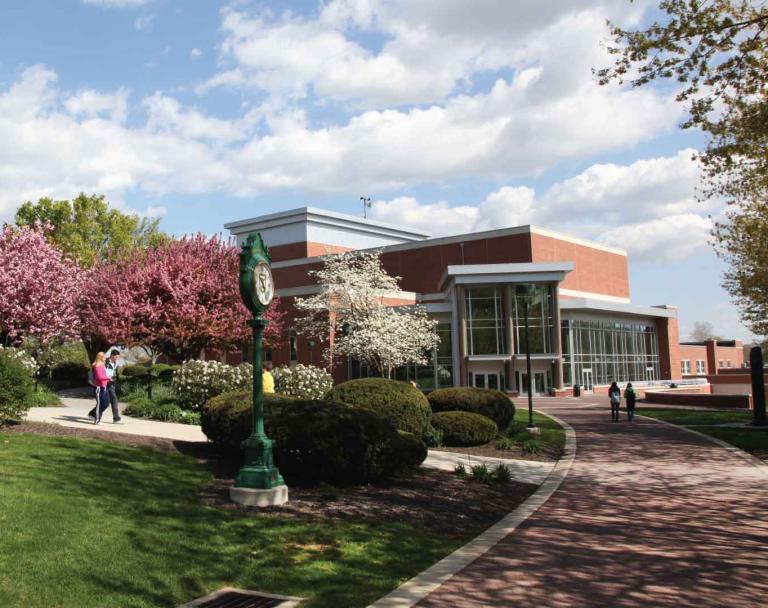Environmental Jobs

New environmental majors at York College lead students to robust career paths
York College of Pennsylvania is adding several new environmental majors to its class catalogue.
“It’s very exciting to give students more path options,” says Charles MacVean, Dean of the Kinsley School of Engineering, Sciences and Technology, which is rolling out Bachelor of Science degrees in Environmental Sciences and in Environmental Horticulture.
In addition, the School of Arts, Communication and Global Studies has added a Bachelor of Arts degree in Environmental and Sustainability Studies, which was originally offered only as a minor.
“It used to be that you needed a science degree to do any environmental work,” says Rory Kraft, Chair of the Arts and Humanities Department. “Today, a lot of graduates will go on to do humanitarian or advocacy work, and this degree is a better fit for that.”
Environmental Sciences
With a robust Biology Department, York College was able to adjust some of its offerings and create the Environmental Sciences major, sparked by students who have an interest in conservation, environmental impact analysis, or mitigation of environmental threats, to name a few.
Graduates could consider working for an environmental consulting company, pursue a teaching career, work in environmental remediation, or dive into mapping and Geographic Information System (GIS) tools.
Environmental Horticulture
Under the generous funding of the late Louis Appell, Jr., a York County businessman and philanthropist, the new Environmental Horticulture major will offer a completely new area of learning to York College students. Appell was particularly interested in the College offering an ornamental horticulture program. Working alongside The Powder Mill Foundation, which manages Appell’s grants, the College was able to offer an even more robust program that includes food production and food sustainability.
Each horticulture and botany course offers a lab for hands-on experience, as well as partnerships in the works with local orchards, farms, and even Appell’s 50-acre private estate, Millbourne. With this degree, MacVean sees an opportunity for graduates to lead industries looking for sustainable, urban food productions, modern farming practices, and the development of healthy food communities. There’s also a chance for graduates to work for national agencies, such as the Environmental Protection Agency (EPA) or the United States Department of Agriculture (USDA).
Environmental and Sustainability Studies
While York College offered the Environmental and Sustainability Studies minor for more than a decade, its popularity has grown as students are looking to work in advocacy, political fields, and humanitarian efforts.
“This is for students who want to get their feet wet and their hands dirty, but it’s also an interdisciplinary major,” Kraft says. “There aren’t many schools on the East Coast that offer this type of program, and we see it really attracting students in this region who are looking for this type of learning.”
He sees many students interested in the theoretical side of sustainability. They’ll want to dig deeper into the long-term implications of theory and politics. They’ll want to understand what the Clean Air Act really means and how the changing of laws and regulations impacts the environment.
From data analysis and statistics, to environmental literature and communications, to political science and environmental ethics, there’s a range of areas this degree could lead a graduate.
“A lot of these classes already existed at York College, we just put them together in a program where it made sense for someone interested in this field,” Kraft says. “We recognized it was time to offer this to students.”

